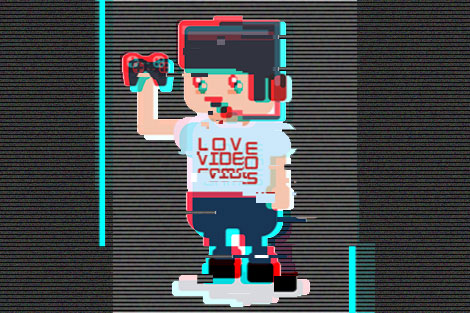Blog Dec. 12, 2018
Culturalization: Understanding Context to Release Quality Game Content

A previous article “Why Absence of Game Localization is Amiss”, covered the definition of localization, its importance, benefits, and standard practices.
Even after crossing the hurdle of localization, the challenges to be faced in distributing games globally still lie ahead. One of these is culturalization. There are more than 190 countries in this world, with over 7 billion people. With this, imagine how much differences we have around the globe. People are unique and diverse in many ways whether through religion, belief, race, gender, culture, and more. These differences can be something that we are born with and cannot be changed, which is why the demand for respect in each other’s differences is very meaningful.
The gaming industry, as a form of art and entertainment, may usually be perceived as less serious, meaning that political correctness may not seem to be a priority. However, due to the fact that the customers are players from around the world; being sensitive to cultural differences is still important. Instead of surrendering to the challenges of what globalizing may bring, win more customers and players across the globe by making sure your game is well-culturalized before release. Now, the question that will arise is, how are you going to make your game enjoyable to different audiences through culturalizing, while still retaining your game vision and delivering the ideal experience you intend?
In this article, we will dig deeper on video game culturalization: the importance of game context, the cultural variables you need to be aware of, and a few key steps for your culturalization plan.
What is Video Game Culturalization?
Some game developers and publishers may think “culturalization” is just another term for “localization”. This thinking can’t be blamed as many are still not familiar with culturalization yet. Moreover, it may be confusing simply because culturalization is just a more specific branch of localization. In culturalization, we need to drop the focus on just language or translation, and rather work harder on the content itself. This means rethinking creative choices by learning and adapting to one region’s cultural environment while being free of any kind of insensitive or offensive remarks.
In Culturalization, How Important is Context in Designing Game Experiences?
Content creators have their game visions set in mind. These creative ideas may be bent but not fully. If you release a game only to your main market you don’t need to change your original game content. However, if you plan to distribute your game to other places or countries, you may need to change your content slightly, or largely. You need to acknowledge these new markets you’re trying to penetrate by applying the symbiosis of content and context that fit their demands – the same way you considered your main target market while crafting your game the first time around.
A lot of games may not be released in other regions as they are kept exclusively in the country where it got developed. There are several reasons why regional lockout may be enforced. Some companies avoid the possibility of losing sales or the product’s impact and choose to strengthen their games in a certain region instead. Some avoid the grey market imports and take hold of price discrimination. This is so they won’t result in a net loss of money as people may buy the cheapest copy around if there’s cross-region trading. This decision of not globalizing may be preferred by other gaming companies. However, if players do want to check out those games despite the boundaries, they still will, especially hardcore fans. They will make an effort to have a copy of the region-locked or unlocalized game regardless of not getting the game experience they deserve. It would be such a waste not to consider marketing those players who are ready to indulge themselves and experience your game fully.
However, not all players can get themselves to understand and be interested in an unlocalized, especially unculturalized game. This is when culturalizing a game becomes very critical as there are other potential markets that need to be catered.
You can’t just translate your game into the language of the area you actually want to enter although it’s part of helping players enjoy and understand a game. Translation is not the only way to connect with your potential players, but also through a deeper connection which can be interpreted through the context of your game. You need to understand people’s beliefs and cultures just how you need to consider their unique views on the contents of your game, as it is one of the criteria whether your game will be sellable to them or not.
The Importance of Cultural Awareness to go further Culturalization

Oftentimes, when people have offended cultures by portraying even a single inappropriate action, it’s usually because they are unaware or ignorant to the cultural context and significance, as well as the specific story there may be behind it. Some say ignorance is a bliss. However, in the business world, especially in the video game industry, ignorance can be a sin.
Take the game Kakuto Chojin (2002) as an example. The game had a chanted portion of the Islamic Qur’an in its audio track. This may not seem to be a big deal for others, as the game developers themselves hoped or assumed it wouldn’t be by not attempting to fix it. However, it could not be denied that such use of a holy script was inappropriate and insulting to Muslims. In fact, the Saudi Arabian government made a formal protest right away which withdrew the said Microsoft game globally. In this case, there may be awareness but without understanding and a true concern for others, you will lose the essence of culturalization. Though there are mistakes that are not intended, still, that cannot be an excuse to keep going without a culturalization plan as these issues can be avoided only if you become fully aware and considerate first. Here are some cultural variables you should consider, to at least help you avoid or lessen some issues and conflict for your game’s content and context.
History and Origins
One of the most sensitive issues for any culture is historical accuracy. Naturally, people tend to care or be concern for their own historical legacy and origins, whether past or present. Even a small altered history can provoke strong reactions from its own people. These events are memorable as they help shape a culture, nationality, and how we live today. Video games use a lot of historical references whether in the storyline, items, characters, visual, or audio as it will be helpful in understanding the concept of the game.
Religion and Belief
These are one of the most sensitive topics that you need to consider when culturalizing. When it comes to religion, you need to be careful not to offend any practice or belief. This includes lifestyle, words, and even foods with religious symbolism. If you are to reach audiences different to what you are used to, it is very significant to learn about their religion and belief systems. This cultural variable is also adapted in video games a lot, especially in fantasy games such as Greek mythologies in God of War series and Christianity in Dante’s Inferno.
Stereotypes and Discriminations
There are also issues with stereotypes, racism, inclusion, and exclusion based on ethnicity, nationality or culture. This is where an unjust treatment or misjudgement to specific groups or an individual belonging to a specific group happens. Creating game characters is very crucial in developing a game. These characters are designed based on appearance, attributes, and skills, may be referenced after a certain cultural group and portrayed offensively or inappropriately.
Geopolitical Imaginations
National governments’ reinforcement of their territorial sovereignty and local geopolitical imagination is also one cultural variable you need to be aware of. This is especially important to countries that hold their ground when claiming certain territories and expecting recognition from others to know that those territories are theirs. Maps are commonly seen in video games. Some are fictional and some are not. Be careful when using virtual world or map in your game, especially if it’s conceptualized or designed after certain places in the world.
How will you Cultivate your Culturalization Plan?
Culturalization wouldn’t be as efficient nor effective if you didn’t include it as a standard component in the game development cycle. Most likely, if you keep repairing issues again and again, it may waste time and effort. Worst comes to worst, being too late to fix mistakes may also jeopardize your whole reputation. Planning to culturalize your game ahead of the release date is the best choice.
But, worry not, we have a few key steps to help you move forward with your culturalization plan:
Specify The Game Market
For example, if you will suddenly release your game to a different country, then it’d be best to learn about a specific local market. You need to research what kind of cultures or practices the specific place or country has. Adapt the game elements that fit their taste or preferences. Avoid those elements that may cause trouble for your game title. Learn anything about a culture that may significantly contribute to the development of your game.
Identify What Can Be The Controversial Factors
There may be minor issues or majorly offensive matters depending on the culture. Identify what elements you used in your game that has a reference such as text, music, symbol, and character references. Carefully learn about the meaning behind the element, especially how it should be properly used or if it’s even allowed. Make sure all these elements with references are surgically addressed. Since such elements in your game may be controversial to other cultures, then you should make them easily editable. If you do, you won’t have to worry about massive changes or starting over when attempting to cater to other markets.
Learn From The Locals
Prepare your culturalized game for testing before actually releasing it to your targeted market. Who’s better to collaborate with this test than the locals themselves?
Survey – Create your survey questionnaires for your targeted players. Continue to be curious and ask away questions that should be relevant to your target market. A more effective way is to coordinate with a local partner or organization, and ask for their opinions to help you create and compile a good set of questions.
Test – You may gather local participants to play your game and answer your survey questions after. Your questionnaire should most importantly include questions about their experience from playing your game.
Results – Interpret and create reports about the results of the test. The result is where you may base your decisions whether you need to proceed, abort, or refine.
The More Cultures to Experience and Enjoy Your Game, The Better Grasp of Culturalization
Ideally, it’d be best to widen your game’s vision and open it to more cultures at the very first hand. With this, it’ll be way easier to pass your game contents from culture to culture. However, it’s already given that it’s not the case for most video game products as there are still a number of banned or regionally-censored controversial games out there. It’s not wrong to mainly target one market. That’s how it really should be, so you can well-define what your game is all about. What can only be wrong is when you refuse to refine your game to pursue other markets and doesn’t allow your product to grow further. What’s even wrong is releasing your game to other places but not acknowledging any cultural sensitivity.
Do consider that the world is huge and there are more than 2.5 billion gamers all over the world. That fact alone is enough reason why culturalizing your game content is very important. Don’t be scared to be creative in developing your game. Just take the global and multicultural diversity as a challenge to think more outside of the box for your game, whether in any form, perspective or, interpretation to be experienced at its best.
In adish, we have native speakers who will take care not only of the translation but also the nuances and underlying values of every bit of the contents in your video game. We will make sure to help you release your game from one place to another with the assurance of best quality and experience.
Let’s help your game enter wider markets and make more diverse players enjoy your game. Start planning your culturalization here with adish.








